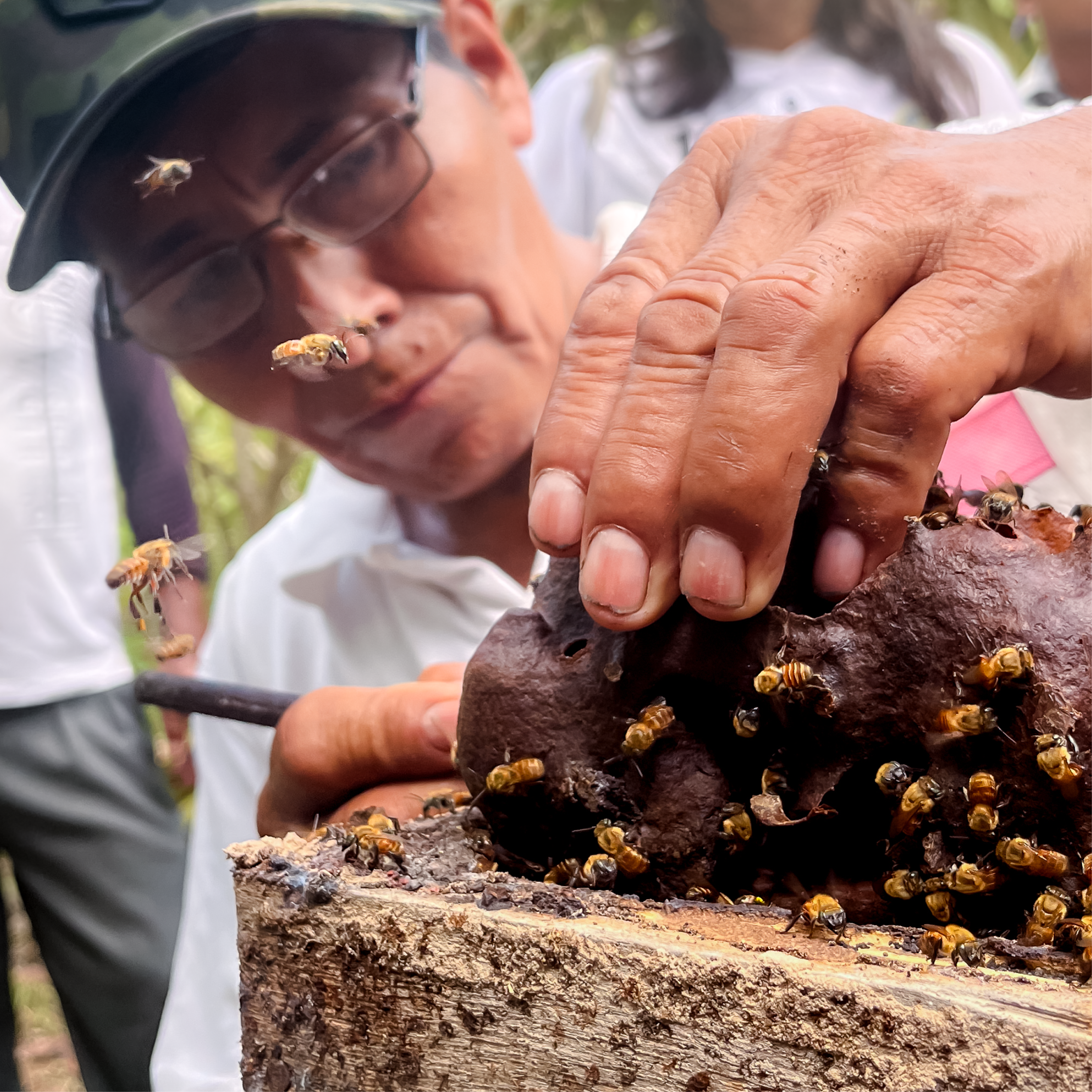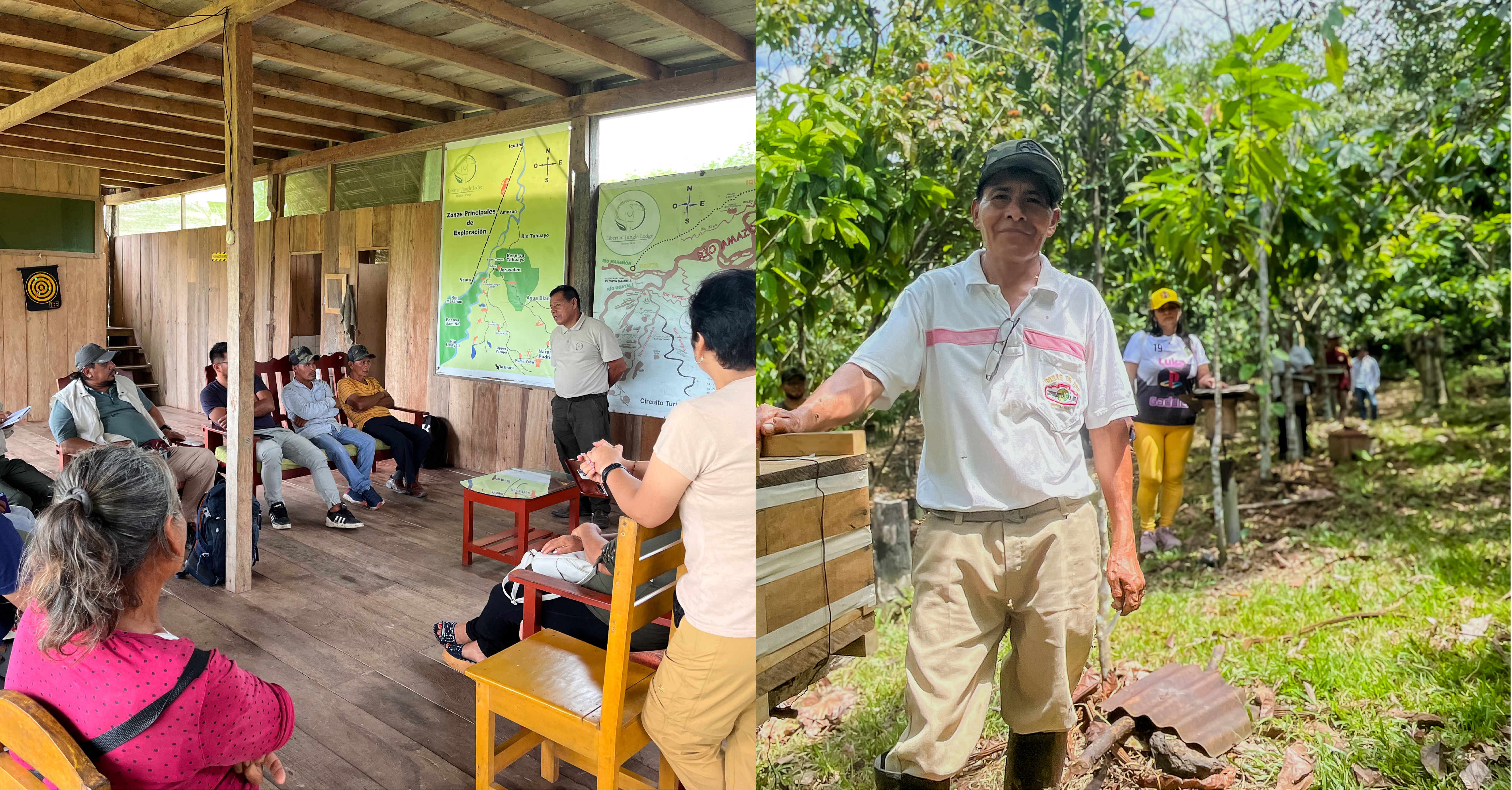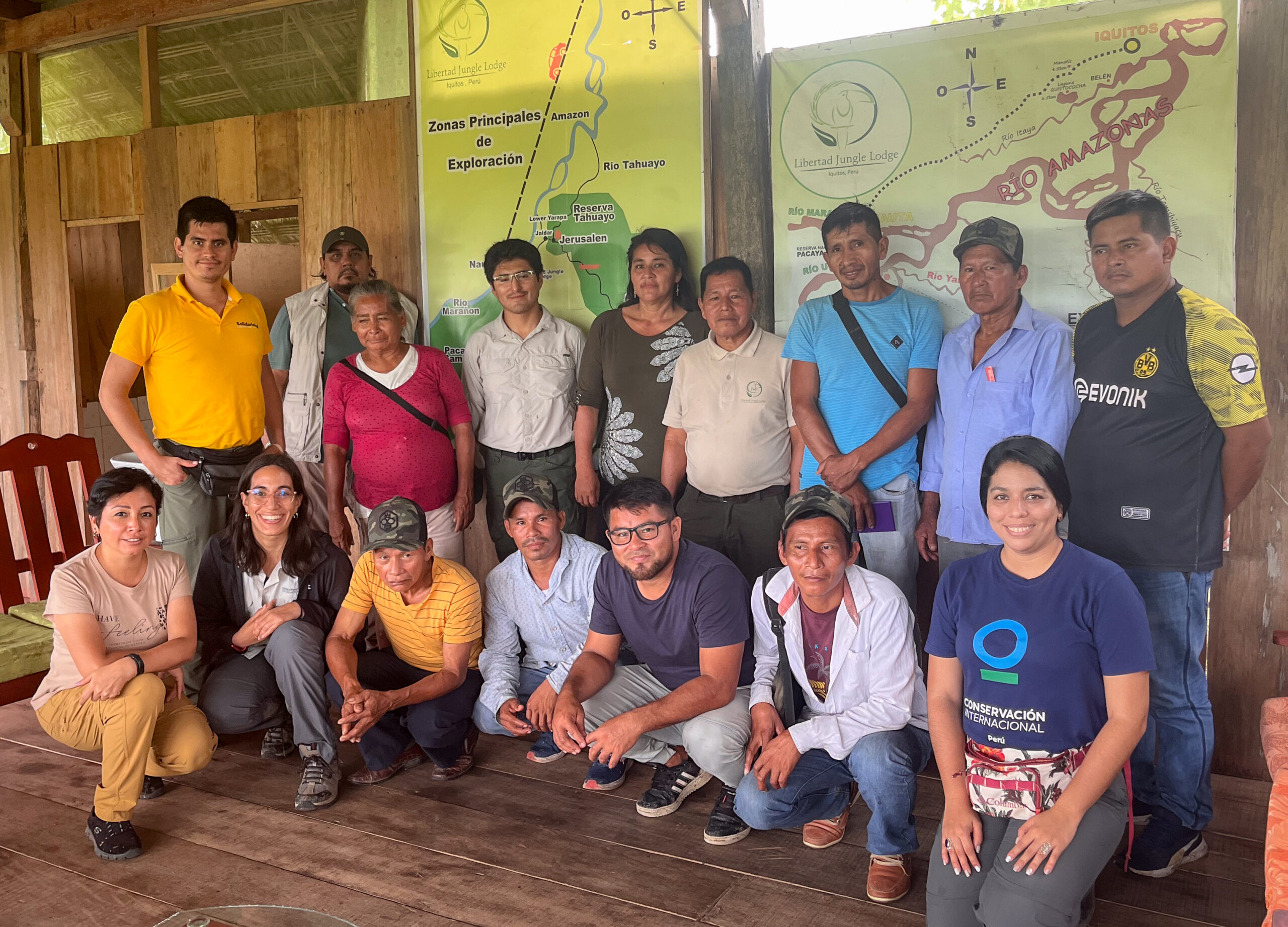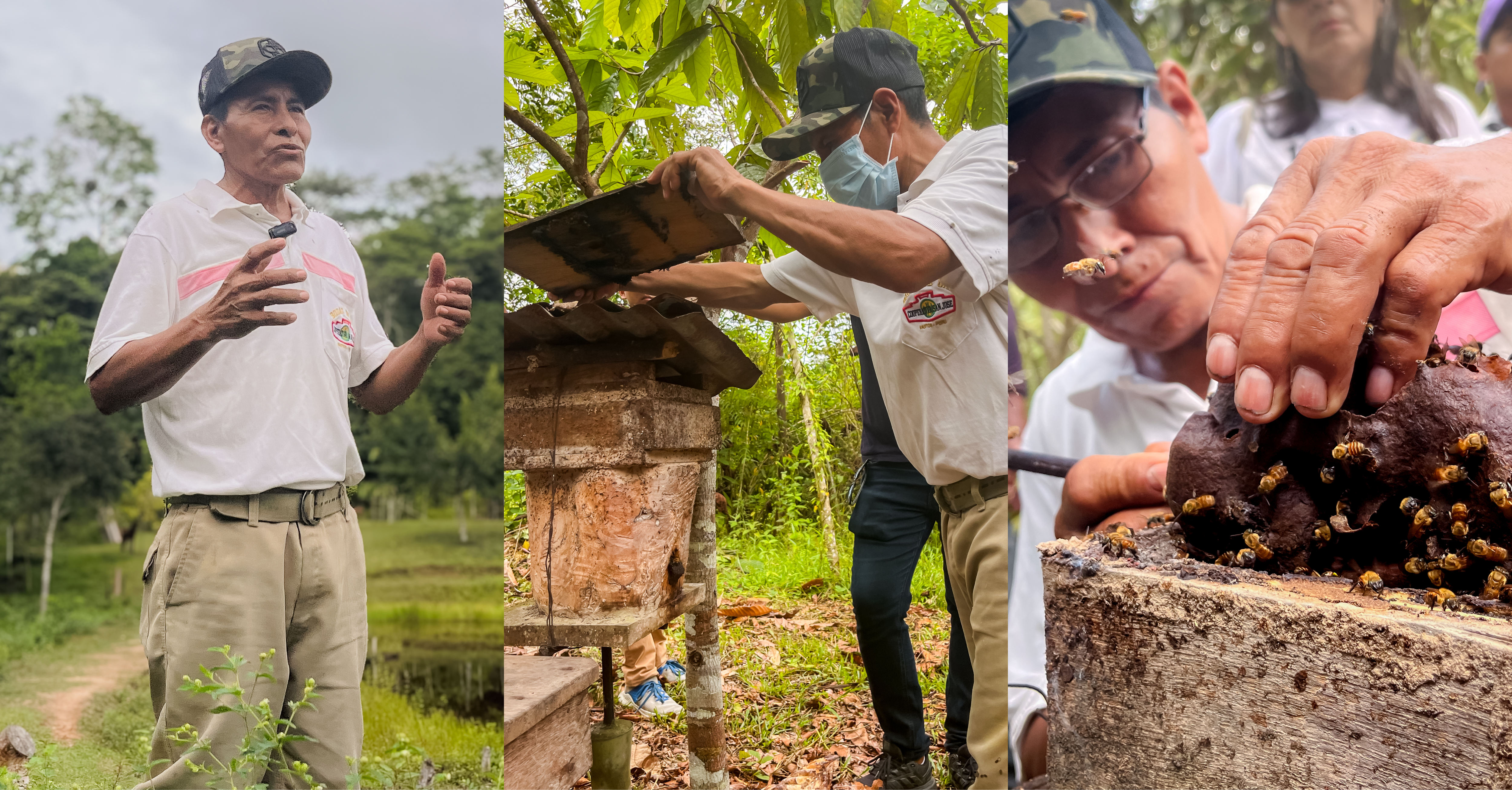

In the Loreto region, in the hamlets of Santa Cecilia and Manití, where the dense Amazon rainforest embraces every corner, the Manití Project, part of the Amazon Business Alliance, seeks to identify biobusiness opportunities with local populations. Currently, these communities rely on traditional agricultural practices for subsistence, as well as charcoal production, firewood, and timber extraction, which have a significant impact on the environment. With the aim of improving the livelihoods of 891 people and, at the same time, preserving the richness of approximately 15,000 hectares of primary forest, the project aims to diversify the local economy to enhance their income without jeopardizing the biodiversity of the Manití forest.

The development of community enterprises that stimulate the local economy with a conservation focus is essential to achieve these goals. Therefore, together with Solidaridad and Grupo Palmas, project partners, a knowledge exchange was carried out to learn about sustainable businesses with good potential in the area. This internship connected nine representatives from four hamlets involved in the project with sustainable businesses that have successfully grown and offer financial returns in the medium term.
Alongside the BioAmaz Cooperative, they gained their first experience in breeding stingless native bees or meliponas. The producers visited the plots of Milton Fernández, who shared his 20-year experience as a sustainable beekeeper and provided a practical class on how to extract pollen and honey from the hive.
“To be a beekeeper, you have to have patience. When I started, I knew nothing about it. I don’t know how I became so fond of bees and now I have several nesting boxes, I have trees that are necessary for them: cocoa, achiote and guabas.”
In addition to learning about this new economic activity firsthand, the internship included a visit to the laboratories of the Center for Research on Natural Resources at the National University of the Peruvian Amazon, where residents had the opportunity to learn about part of the honey and pollen analysis process. This experience highlighted the importance and differential value of melipona bee honey and its potential as natural medicine.
Carmen Vizcarra Angulo, the deputy governor of the Páparo community, highlighted the importance of learning from the experiences of other producers to bring new knowledge to their localities. This internship rekindles Carmen’s motivation:

"Reaching places where they demonstrate practicality does give us the encouragement to move forward and continue learning more. This way, we can return to our communities and teach our residents."

As a second experience, Manuel Bardales presented the ecotourism venture of his native community, Libertad Jungle Lodge, located on the banks of the Ucayali River. There, he shared his story and the effort it took to embark on the sustainable ecotourism industry and how to involve the entire community in the business. Manuel emphasizes the importance of working together, as a team, and, above all, protecting natural resources.
During the exchange of experiences, participants had the opportunity to learn about new productive chains and perspectives, exploring potential sustainable practices that are viable in their locality. Although there are many challenges to overcome, such as limitations in communications and the prolonged time of river transportation, participants point out that this internship has allowed them to see, through examples, the benefits provided by the Amazon and the opportunities they can seize for the development of their communities.

This project is part of the portfolio of the Amazon Business Alliance, driven by USAID, the Government of Canada, and Conservation International Peru.